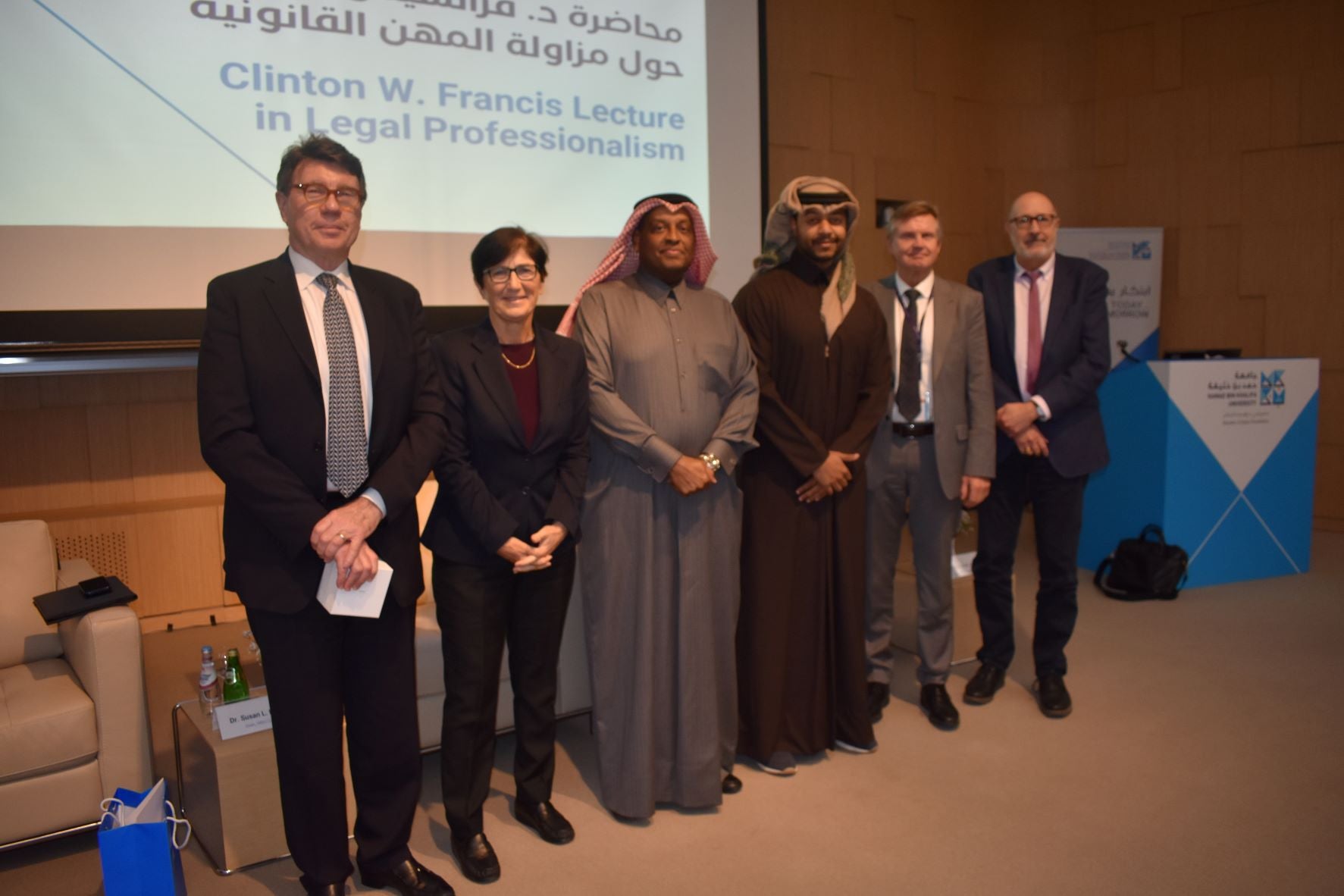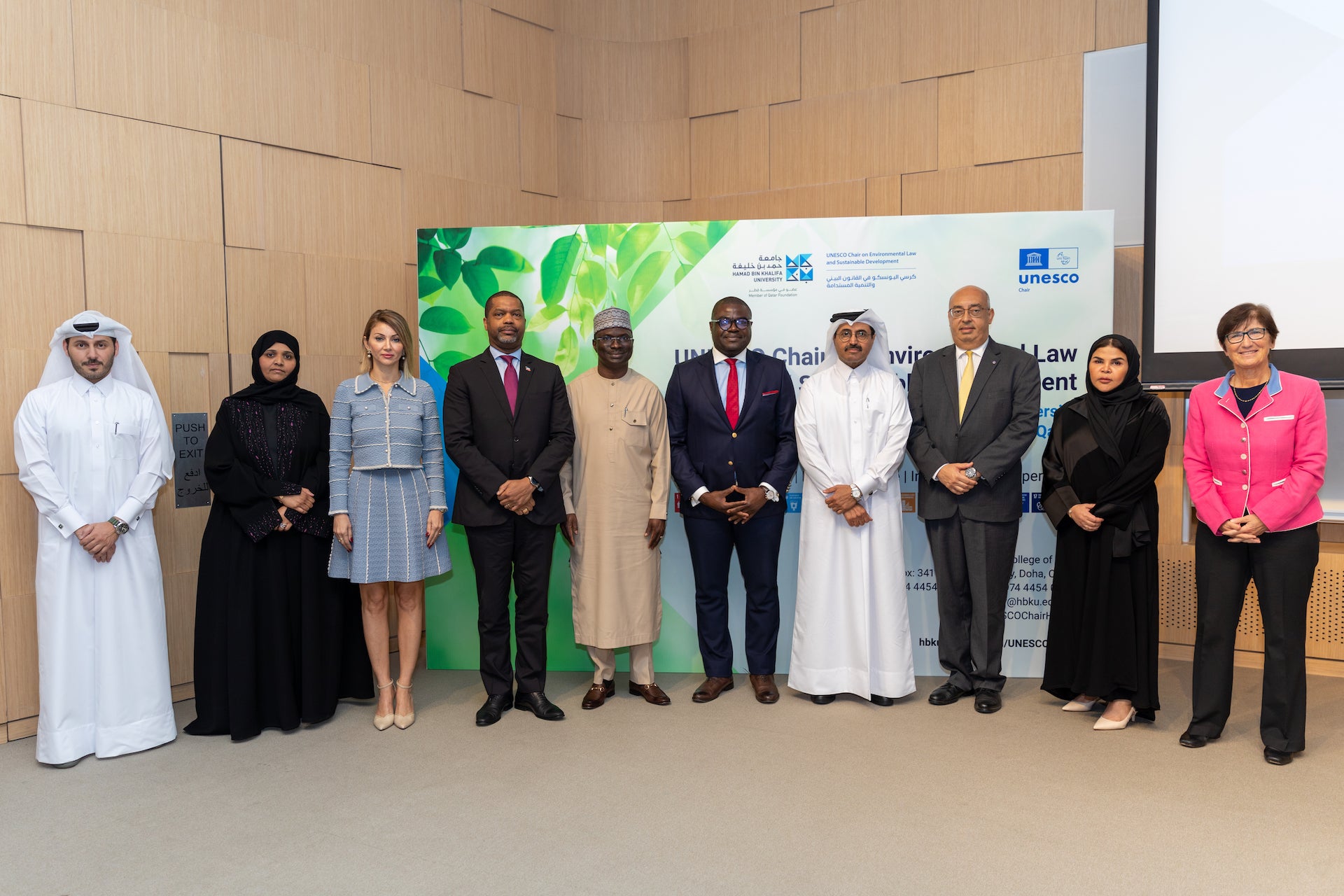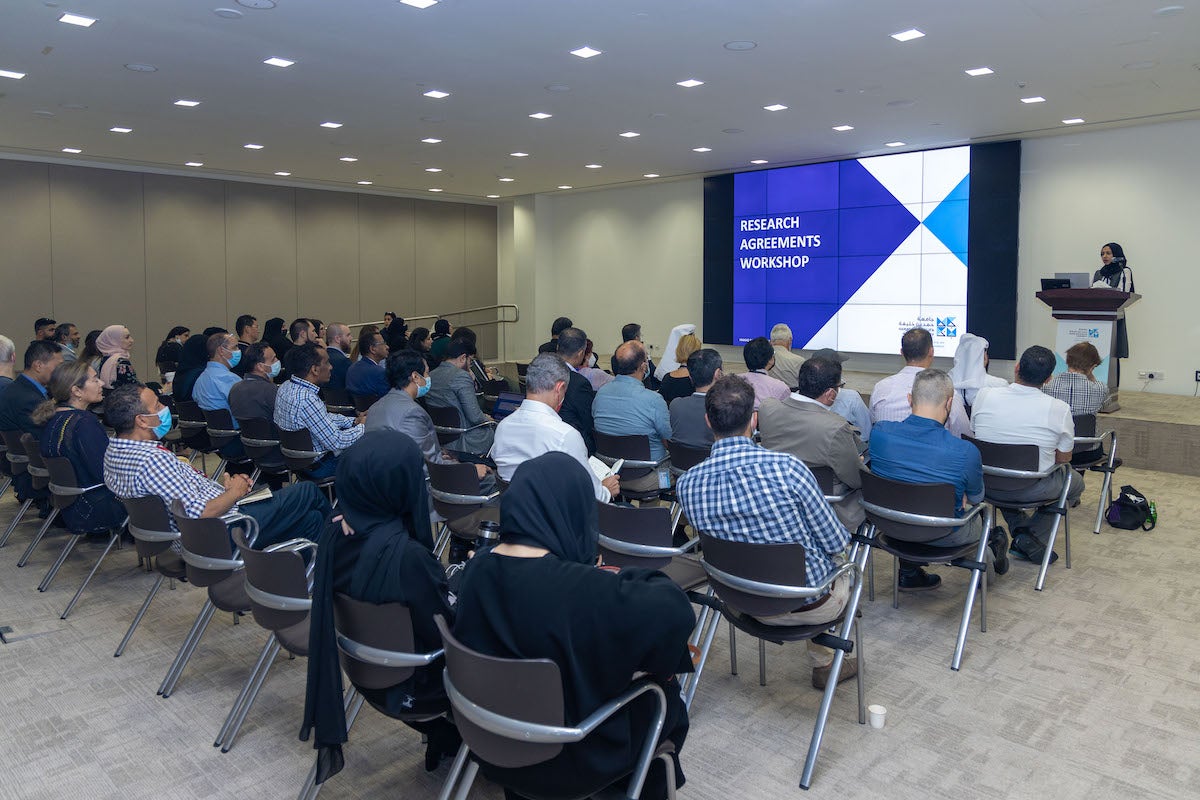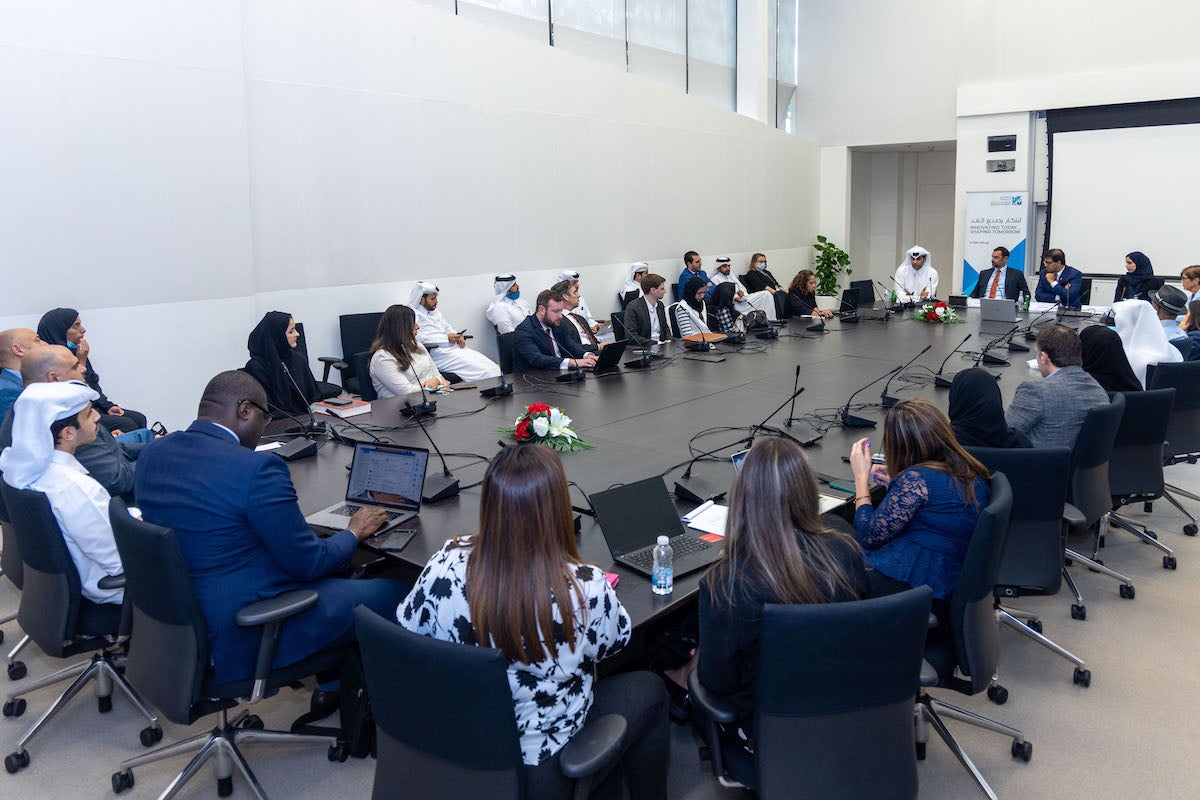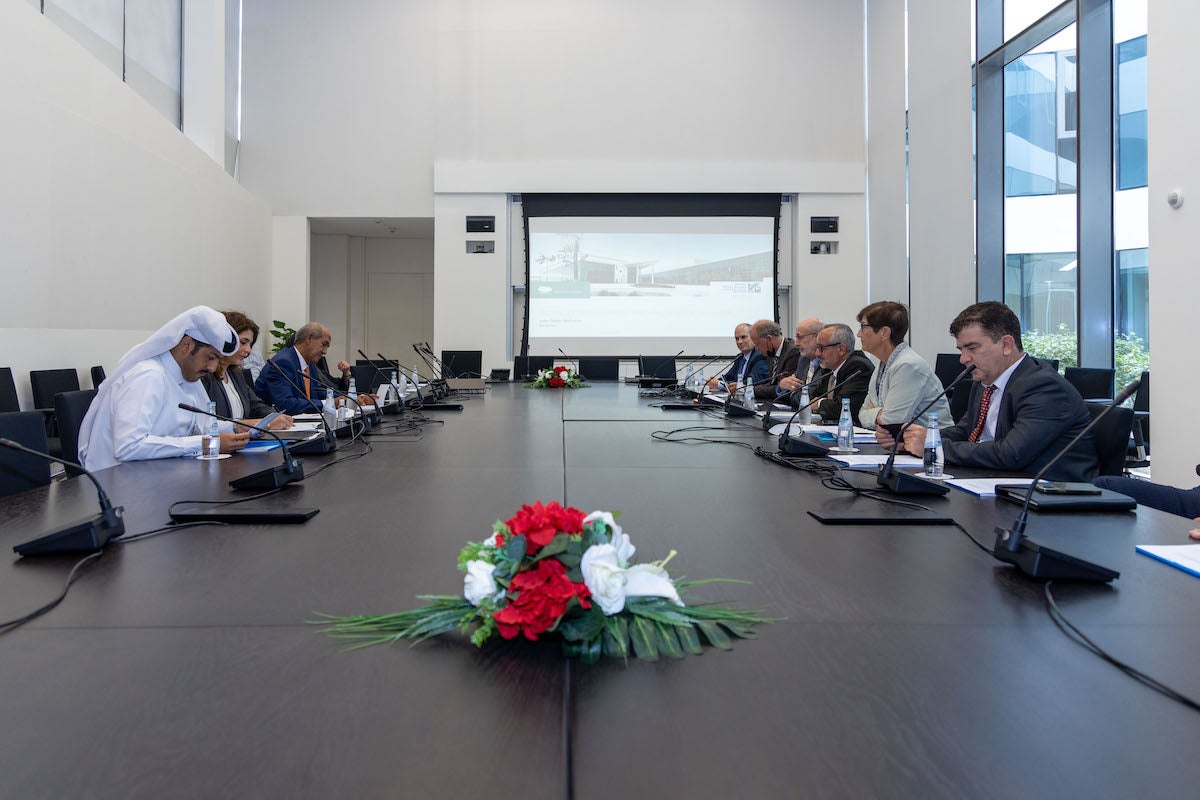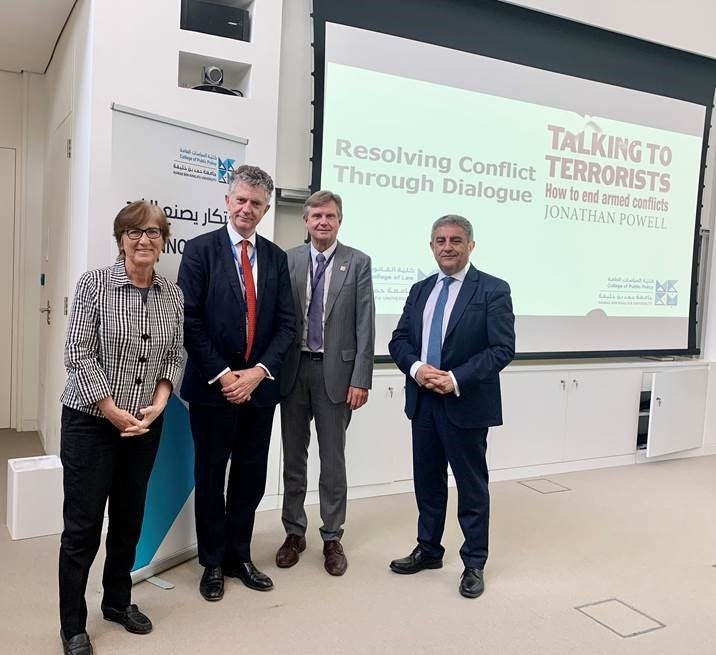Guest lecturer stimulates discussion on international legal framework for global governance
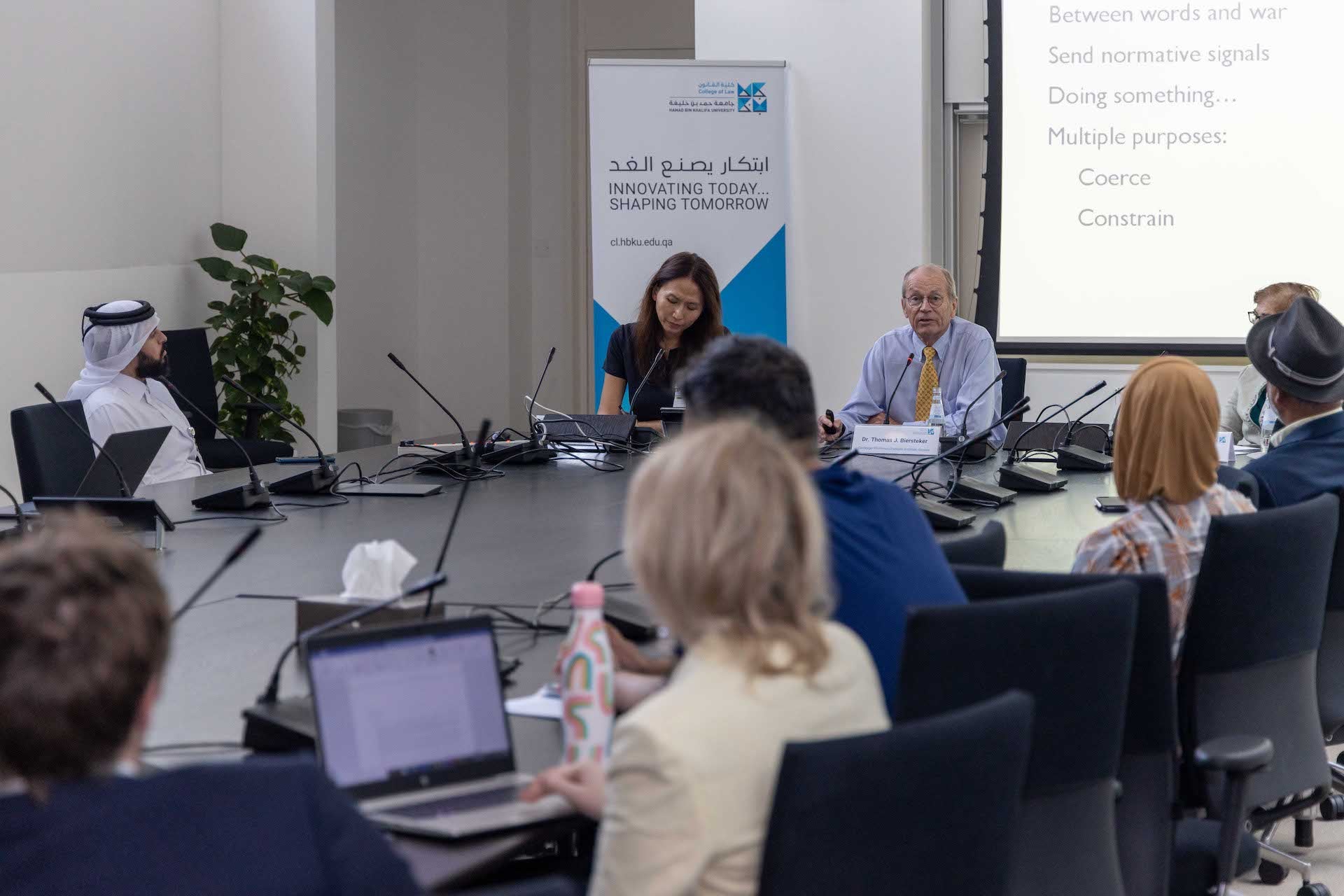
Hamad Bin Khalifa University (HBKU)’s College of Law hosted a guest lecture on September 7 that examined the international sanctions regime as a central governance mechanism for maintaining international peace and security.
Titled “International Sanctions: Overused and Underutilized,” the lecture was delivered by Dr. Thomas J. Biersteker, Gasteyger Professor Honoraire, Graduate Institute of International and Development Studies, Geneva, who has done extensive work on international sanctions.
In his lecture, Dr. Biersteker examined both United Nations (UN) and unilateral sanctions, noting their mixed record of accomplishment and unintended consequences. An interesting aspect of his lecture focused on the potential of partial sanctions to unblock deadlocked negotiations. The lecture attracted a large and distinguished audience from diverse regions affected by sanctions and led to a rich exchange on the current sanctions on Afghanistan, Iran, and Yemen.
Dr. Ka Lok Yip, Assistant Professor at the College of Law, was a discussant at the lecture. Commenting after the event, Dr. Yip said: “Current geopolitical challenges provided the context for the very informative talk by Dr. Biersteker. It was particularly valuable to hear his insights on what consequences sanctions might have for civilian populations as well as for lawful business or humanitarian activities.”
Susan L. Karamanian, Dean of the College of Law, who moderated the event, said: “Reflecting on what targeted sanctions have, and have not, achieved is important for efforts to strengthen global governance. This is particularly true given the recent events unfolding in Ukraine. We thank Dr. Biersteker for a well-rounded and insightful talk that has enabled us to examine our own research and scholarship within an applied context.”
Related News
